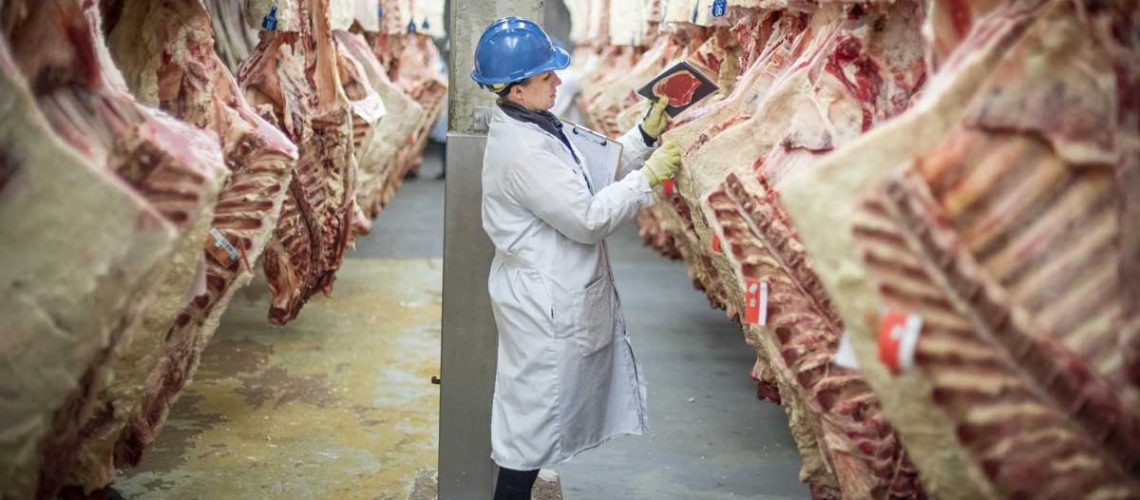Home » Author of study saying red meat is fine failed to disclose industry funding, journal reveals
Author of study saying red meat is fine failed to disclose industry funding, journal reveals

Upon publication, a number of leading voices in nutrition science and policy took issue with the study’s methodology and claimed its authors, who have formed a group called NutriRECS, did not disclose ties with AgriLife Research, an arm of Texas A&M University that is partially funded by the beef industry.
At that time, Annals editor in chief Christine Laine told The Washington Post: “I’m not aware of any relationship between AgriLife and NutriRECS. Would we retract the paper? No. A lot of the drug trials have industry funding. Conflicts of interest is just one potential source of bias.”
But on Dec. 31, the Annals issued a correction, saying that Bradley Johnston, the chief author of the work and until last year a professor of epidemiology at Dalhousie, failed to disclose a key conflict of interest. AgriLife Research provided Johnston and Dalhousie $76,863 for a new meta-analysis on saturated fat. This funding occurred within the 36-month reporting period required by the International Committee of Medical Journal Editors, and before Johnston moved to a new job at Texas A&M.
Although the funding was for separate research, it raises questions about the researchers’ agenda to make saturated fat look benign or even beneficial, something that would benefit AgriLife, according to clinical researcher Neal Barnard, who launched the campaign for a printed correction and who is president of the Physicians Committee for Responsible Medicine, a nonprofit that promotes a plant-based diet.
Asked about the Annals correction, AgriLife spokeswoman Holly Shive said that Johnston revised his disclosure statement for the correction, adding items that exceeded the journal’s disclosure requirements. She said that because AgriLife Research is a state agency affiliated with an academic institution, it did not need to be listed.
“Dr. Johnston’s updated statement exceeds the Annals’s requirements and makes clear he did not receive funding from any agricultural or food industry interests for his research on red and processed meat as well as saturated and polyunsaturated fats,” Shive said.
When the Annals study was published, Patrick Stover, the vice chancellor and dean of AgriLife and one of the authors on the Annals study, told The Post that AgriLife did $4.5 million in beef research in 2019, with half of it funded by federal sources like the Agriculture Department and the other half from beef industry groups. Stover hired Johnston in 2019, and Johnston has just started as an associate professor in the community health and epidemiology department at Texas A&M.
Laine said the editors received information about the grant after publication. (A study says full steam ahead on processed and red meat consumption. Nutrition scientists say not so fast.)
“The funding was for work in the field of nutrition and the start of funding period was within the 36-month reporting period required by Annals, so it is a relationship that should be reported on the journal’s disclosure form,” Laine said in an email. “When Dr. Johnston was asked about this grant, he agreed it should have been disclosed and agreed to make the change.”
In December 2016, Johnston was the senior author on another study in the Annals of Internal Medicine that called into question international health guidelines advising people to eat less sugar. The study, insisting that warnings to cut sugar were based on weak evidence, was paid for by the International Life Sciences Institute, a food industry trade group with members such as McDonald’s, Coca-Cola and PepsiCo.
When the connection was revealed after publication, Johnston agreed it should have been disclosed, and the journal issued a correction.
Red and processed meat are increasingly seen as a major culprit in lifestyle diseases as well as greenhouse gas emissions. But people like to eat meat, with Americans consuming more than 220 pounds per person each year. Repeated flip-flops on the healthfulness of red meat may cause consumers to throw up their hands and disregard nutritional advice altogether, Barnard and other nutrition scientists worry.
“When you talk about conflicts of interest, appearance is everything,” said Marion Nestle, an author and former nutrition professor at New York University who has written extensively about the issue. “From the outside, it certainly looks like AgriLife is in the pocket of the meat industry and hired someone who has made a career out of undermining the dietary guidelines.”
Correction: An earlier version of this article incorrectly stated that Texas A&M AgriLife funded the Annals study. It funded other research by author Bradley Johnston. The article has also been updated to clarify that.

